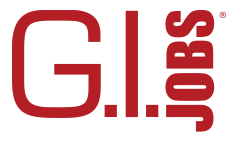This Marine veteran used her military training and experience to land a civilian career she loves.
The demand for civilian workers in skilled trades has not lessened. If you are experienced in a skilled trade or willing to learn one, the opportunities for a high-paying rewarding civilian career are plentiful. Haley Stanford is a great example. She leveraged her experience as a helicopter technician in the Marine Corps into a fulfilling civilian career.
What did you do in the Marine Corps?
I was an avionics technician on Hueys and Cobras. We were responsible for fixing anything electrical on the aircraft.
What was the biggest challenge transitioning from the military?
Loneliness. I went from living in a barracks full of Marines, of which at least several were available to talk to or hang out with at any given time of day or night, to renting out a room in the house of a person I didn’t know and had no commonalities with.
What do you do in your current job?
My team and I take care of everything in the facility that has to do with electrical, mechanical or HVAC/R. I ensure my team is adequately trained and that morale stays high.
How did you find this job?
I believe I found this job on LinkedIn. I actually initially applied for the Critical Facility Engineer position. I had worked my way up to chief engineer at my previous place of employment, but was ready to start over and work my way back up at a new company if necessary. Luckily, my first interview for this job went well and I was offered an interview for the lead position.
Would you recommend this career field?
I would recommend this career field to other vets. There are many skills, traits and values instilled in us during service that I believe are necessary to this job. This industry is also flooded with veterans which makes transitioning a lot easier as we tend to share similar interests and experiences. It also doesn’t hurt that the industry pays pretty darn well.
What do you WISH you knew when you transitioned from the military that you know now?
I wish I knew that C&P Exams aren’t the time for a display of toughness and downplaying of pain and injuries. If anything, it’s the one time you need to put your walls down and be completely open and honest about your pains, injuries and experiences. Don’t feel weak or guilty about seeking help and receiving the VA compensation you deserve. Everything that hurts now will hurt even more in years to come.
What mistake would you advise service members or veterans to avoid?
Don’t underestimate your value; but also, don’t walk through the door on day one with a sense of entitlement.
Don’t be afraid to ask questions. You aren’t expected to know everything, ever. As a veteran you are sort of pre-packed with the tools necessary to be successful in this industry, but that does not mean that you will have the knowledge to be an asset right off the bat. Admit when you don’t understand something, speak up when you need clarity.



